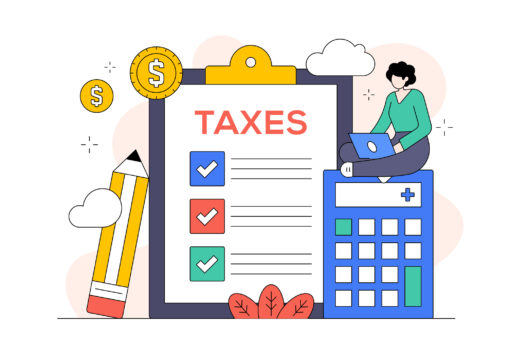Taxes are a complex and often daunting aspect of financial life, especially when terms like tax evasion and tax avoidance come into play. Both concepts revolve around reducing tax liabilities but differ significantly in legality and consequences.
Understanding these differences is crucial, especially for individuals or organizations managing significant financial resources. Contact Chambers Law Firm at 714-760-4088 now for a free legal consutlation with a federal criminal defense attorney.
Tax Evasion: The Illegal Maneuver
Tax evasion is an illegal activity where an individual or organization intentionally underreports income, inflates deductions, or hides money to reduce their tax liability. It’s a form of deceit and fraud against the government, leading to serious legal consequences. Common methods of tax evasion include not reporting cash income, hiding assets or earnings, and using false documentation to claim unentitled deductions or credits.
Consequences of Tax Evasion
Tax evasion is a federal crime with severe penalties, including imprisonment and substantial fines. Individuals convicted of tax evasion can face up to five years in jail and fines up to $250,000 (or $500,000 for corporations). Additionally, the offender is typically required to pay back the owed taxes along with interest and penalties, which can significantly exceed the original tax amount due.
Tax Avoidance: The Legal Strategy
In contrast to tax evasion, tax avoidance is the legal use of the tax regime to one’s advantage to reduce the amount of tax that is payable. This involves utilizing tax deductions, credits, and benefits expressly provided by law. Examples of tax avoidance include contributing to retirement accounts, making charitable donations, or taking advantage of tax credits for education or energy efficiency.
The Legality and Ethics of Tax Avoidance
While tax avoidance is legal and widely practiced, it must be done within the bounds of the law. It becomes problematic and potentially illegal when it involves deceitful practices or the misuse of tax provisions. Therefore, individuals and businesses are encouraged to consult with tax professionals to ensure their tax strategies are both effective and lawful.
Navigating the Thin Line: The Role of a Tax Fraud Lawyer
The line between tax evasion and tax avoidance can sometimes seem thin, but it’s a critical one. If you or your organization is accused of tax evasion, it is imperative to seek legal counsel immediately. A tax fraud lawyer can help clarify the charges, devise a defense strategy, and represent you in negotiations or court proceedings. They can also guide you through the process of rectifying past tax mistakes through mechanisms like filing an amended return.
When to Seek Legal Advice
Anyone facing allegations or charges of tax evasion should contact a tax fraud lawyer as soon as possible. Early legal intervention can help mitigate the consequences and potentially lead to more favorable outcomes. Chambers Law Firm understands the complexities of tax law and provides the expertise needed to navigate these serious accusations. Reach out to Chambers Law Firm at 714-760-4088 for comprehensive legal support and representation.





